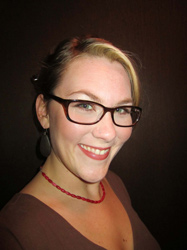
Laura Kennedy,
Voice of the Audio News.
The news of the week in audio, for many years compiled and written by the late Michelle Hilling of Archaeologica, is now the product of our dedicated volunteer team. Read by Laura Kennedy, the Audio News is compiled from Archaeologica’s daily news updates. The musical interludes are original compositions by Anthony Pettigrew.
Bone Found, Possibly from Hannibal’s War Elephants; Early Mammoth Ivory Workshop Found; Early Innovation Linked to Mobility; Cemetery Yields Insights on Medieval Hungary.
Oldest Wooden Tools Unearthed; Oaxaca Tomb Features Enormous Owl Carving; Pillars Point to Thriving Neolithic Culture; Advanced Stone Technology Unearthed in China.
Indonesian island with the world’s oldest cave art; oldest elephant-bone tool in Europe; early bacterium related to syphilis; Jordan mass burial reveals migration patterns
Phrygian tomb far from Gordion; Anglo-Saxon cemetery in England; late burials in Spanish Neolithic dolmen; underwater remains on Peruvian coast
Lidar reveals hidden Ecuadorian cultural landscape; very ancient poisoned arrowheads; trove of administrative artifacts in Iran; rare bronze horn in England
Lost Spanish mission in Texas; early silver penny in Scotland; huge hillfort in Ireland; surprisingly ancient cremation in Malawi
Very old textile fragments in Bulgarian cave; Maya patolli board with mosaic design; Indian stone labyrinth; Hittite cuneiform fragment in Czech Republic
Technological innovation at Paleolithic site in France; comet to explain Star of Bethlehem; Chinese community’s climate survival; where the Bayeux Tapestry originally hung
Indigenous sites near Jamestown; earliest intentional fire in England; mathematical relationships in Neolithic art; submerged stone structures in Brittany
Isolation of early humans in southern Africa; DNA and cat domestication; sacrificial patterns of men and women in ancient China; Mexica break-aways in Mexico City
Cereal grains and early state development; early migrants to Australia; Peruvian astronomical structure; two pharaohs in the same tomb
Early “woman with goose” figurine in northern Israel; unusual metal-production site in Kazakhstan; Lake Mendota canoes; silver cup in Palestine with cosmic map




